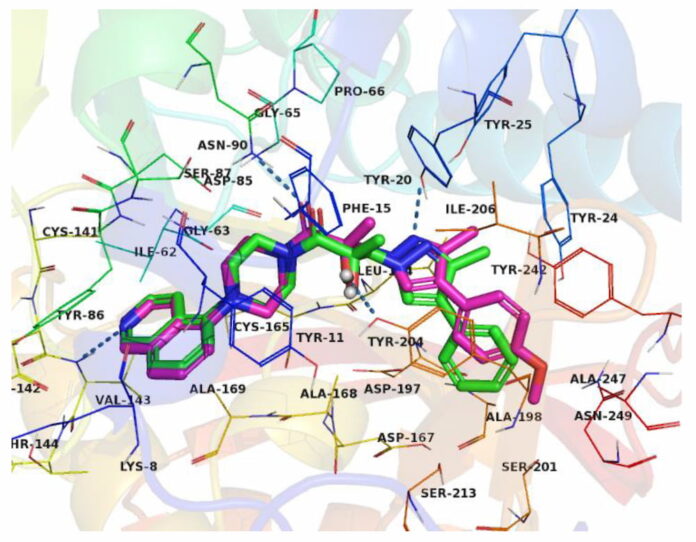In the quest for new therapeutic strategies, researchers have turned their attention to NNMT inhibitors, a class of compounds that hold great promise in medicine. NNMT, or Nicotinamide N-Methyltransferase, is an enzyme that plays a crucial role in various biological processes. Understanding the function of NNMT and how its inhibitors work can pave the way for novel treatments for a wide range of diseases. This article delves into NNMT inhibitors and their effects, like 5 amino 1mq results, and explores their potential as a therapeutic strategy.
Unraveling the Role of NNMT
NNMT is an enzyme found in cells throughout the body, with exceptionally high levels in the liver, adipose tissue, and kidneys. Its primary function is to catalyze the methylation of nicotinamide (a form of vitamin B3) using S-adenosylmethionine (SAM) as a methyl donor. This process produces a compound called N1-methyl nicotinamide (1-MNA).
While the exact biological functions of NNMT are still being unraveled, studies have suggested its involvement in energy metabolism, inflammation, and cellular stress responses.
Linking NNMT to Diseases
Recent research shows the role of NNMT in developing and progressing several diseases. Elevated NNMT expression has been observed in conditions such as obesity, type 2 diabetes, liver diseases, and certain types of cancer.
The exact mechanisms by which NNMT contributes to these diseases are not fully understood, but it is believed to impact cellular metabolism, gene expression, and inflammatory processes.
Given its involvement in various pathological conditions, NNMT has emerged as an attractive target for therapeutic intervention.
The Effective Role of NNMT Inhibitors
NNMT inhibitors are a class of compounds designed to block the NNMT enzyme’s activity, thereby preventing nicotinamide’s methylation.
By inhibiting NNMT, these compounds aim to disrupt the downstream effects of its activity and potentially alleviate disease-related processes. Several types of inhibitors have been developed, including small molecules and natural compounds.
Mechanism of Action
The precise mechanism of NNMT inhibitors varies depending on the specific compound, but the overall goal remains the same: to reduce NNMT activity.
Some inhibitors directly bind to the NNMT enzyme, blocking its active site and preventing the catalytic reaction.
Others modulate the expression of NNMT by targeting the genes involved in its production. By interfering with NNMT function, these inhibitors aim to restore cellular homeostasis and mitigate disease-related processes.
Therapeutic Potential
The therapeutic potential of NNMT inhibitors spans a wide range of diseases. In obesity and type 2 diabetes, these inhibitors could help regulate energy metabolism, improve insulin sensitivity, and reduce inflammation.
NNMT inhibitors may protect against hepatic steatosis, fibrosis, and cirrhosis in liver diseases. Furthermore, NNMT inhibitors hold promise in cancer treatment by interfering with tumor growth, metastasis, and drug resistance. The versatility of NNMT inhibitors makes them an exciting avenue for drug development.
Challenges and Future Directions
While NNMT inhibitors show great promise, several challenges must be addressed before they can be translated into clinical practice.
One major hurdle is the development of selective inhibitors that specifically target NNMT without affecting other enzymes or cellular processes.
Additionally, optimizing the pharmacokinetics and bioavailability of these compounds is crucial for their successful application in humans.
In conclusion, NNMT inhibitors and their effects, like 5 amino 1mq results, represent a promising therapeutic strategy with vast potential across multiple diseases. By targeting the NNMT enzyme and its downstream effects, these compounds can potentially revolutionize the treatment landscape.
Read Also
- How to Find a 5-Star Dentist Near YouChoosing a dentist is more than just finding someone who can clean your teeth. It’s about selecting a trusted partner in your long-term oral health. A 5-star dentist not only provides excellent clinical care but also delivers a positive patient experience, from the moment you walk in until the moment you leave. Whether you’re new… Read more: How to Find a 5-Star Dentist Near You
- Your Easy-Peasy Guide to Brewing Amazing MatchaHey there! So, you’ve heard all the buzz about matcha – that vibrant green powder that’s not just pretty but packed with good stuff? It can seem a little fancy and intimidating at first, but trust me, making a delicious cup at home is simpler than you think. Forget complicated ceremonies for now; let’s just… Read more: Your Easy-Peasy Guide to Brewing Amazing Matcha
- Embracing Holistic Wellness: Insights from a Lansing, MI Health CenterReframing Health: Moving Beyond Symptom Management Treating only symptoms often offers quick relief, yet long-term results stay out of reach. When care zeroes in on isolated complaints, the bigger picture, such as stress, behavior, or lifestyle, often gets missed. Research shows that whole-person care, which looks at physical, emotional, and environmental factors, yields better outcomes… Read more: Embracing Holistic Wellness: Insights from a Lansing, MI Health Center
- VO₂ Max Testing Explained: What It Is & Why It Matters for Your HealthVO₂ max sounds like a term reserved for elite athletes, but it’s among the most accurate measures of your lifetime and general condition. Moreover, it goes beyond performance. Monitoring your VO₂ max will help you to ascertain your body’s capacity to control stress, its oxygen consumption efficiency, and your internal ageing process. If you have… Read more: VO₂ Max Testing Explained: What It Is & Why It Matters for Your Health
- So, what exactly is matcha?Think of matcha as green tea turned up to eleven! Instead of steeping leaves and tossing them out, matcha is made by grinding whole green tea leaves into this super-fine, vibrant green powder. You whisk it right into hot water (or milk!), meaning you’re drinking the entire leaf. That’s why folks say you get way… Read more: So, what exactly is matcha?
- How to Tell When It’s Time for Professional Senior Care SupportCaring for an aging loved one is a journey filled with love, patience, and difficult decisions. One of the toughest choices families face is knowing when it’s time to seek extra help. In this article, trusted Los Angeles caregivers for seniors explore the signs that it might be time to bring in professional support, not… Read more: How to Tell When It’s Time for Professional Senior Care Support







